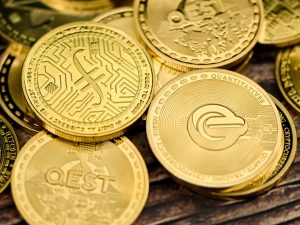The forex market and the international monetary system are closely related as they both deal with the exchange of currencies between countries. The international monetary system is a set of rules, regulations, and institutions that govern the exchange of currencies among nations. On the other hand, the forex market is a decentralized market where currencies are bought and sold by individuals, institutions, and governments.
The international monetary system has evolved over time, from the gold standard to the Bretton Woods system, and finally to the current floating exchange rate system. The gold standard was a fixed exchange rate system where the value of a currency was fixed to a certain amount of gold. However, this system was abandoned during the Great Depression as it failed to provide the necessary flexibility to respond to economic shocks.
The Bretton Woods system was established after World War II and was based on the US dollar being fixed to gold, and other currencies being fixed to the US dollar. This system worked well for a while, but it was abandoned in 1971 when the US dollar was no longer able to maintain its fixed value due to inflationary pressures.
The current international monetary system is a floating exchange rate system where the value of currencies is determined by market forces of supply and demand. This system provides flexibility for countries to respond to economic shocks and also allows for greater freedom in monetary policy.
The forex market is the largest financial market in the world with an average daily turnover of over $5 trillion. The market is open 24 hours a day, five days a week and is accessible to anyone with an internet connection. The forex market is where currencies are bought and sold, and it is where the exchange rates are determined.
The exchange rate is the price of one currency in terms of another currency. Exchange rates fluctuate constantly due to changes in economic and political factors. For example, if a country’s economy is doing well, its currency will appreciate in value, and if there is political instability, its currency will depreciate in value.
The forex market plays a crucial role in the international monetary system as it provides a mechanism for countries to exchange currencies. For example, if a country wants to import goods or services from another country, it will need to pay for them in the currency of the exporting country. This requires the exchange of currencies which is facilitated by the forex market.
The forex market also provides a way for countries to manage their foreign exchange reserves. Foreign exchange reserves are the foreign currencies held by a country’s central bank. These reserves are used to intervene in the forex market to stabilize the exchange rate or to finance international trade.
In conclusion, the forex market and the international monetary system are closely related as they both deal with the exchange of currencies between countries. The international monetary system provides the rules and regulations for the exchange of currencies, while the forex market provides the mechanism for exchanging currencies. The forex market plays a crucial role in facilitating international trade and managing foreign exchange reserves.





